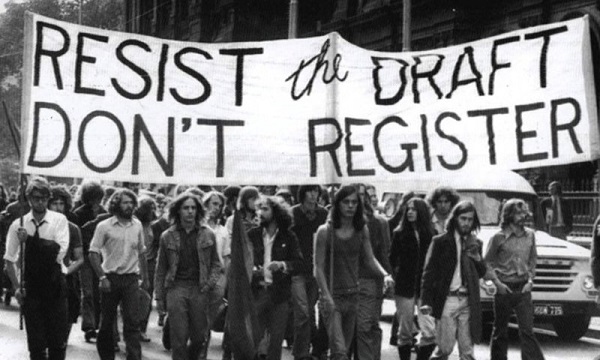Opinion
Anyone seen my pants?

Autism
RFK Jr. Completely Shatters the Media’s Favorite Lie About Autism

 The Vigilant Fox
The Vigilant Fox
They say autism is rising because of “better diagnosis”—but RFK Jr. just blew that narrative wide open. He brought the hard data and dropped one undeniable truth the denialists can’t explain.
HHS Secretary Robert Kennedy Jr. appeared on Hannity Thursday evening and unloaded on the predominant autism narrative. It started with a bombshell reveal from Kennedy’s own childhood.
Hannity asked: “What was the number when you were a kid—and what do you think is going on?”
Kennedy replied: “There’s really good data on that.”
He pointed to one of the largest studies ever conducted—900,000 children in Wisconsin, published in a top-tier medical journal.
“It looked at 900,000 kids. It was published in a high-gravitas journal, peer-reviewed study, and they found the rate to be 0.7 out of 10,000.”
That’s less than 1 in 10,000. Today? It’s around 1 in 31.
Let that sink in.
Join 110K+ Substack readers and 1.6 million 𝕏 users who follow the work of Vigilant Fox.
Subscribe for top-tier news aggregation and exclusive stories you won’t find anywhere else.
That’s when Kennedy sounded the alarm on what’s happening now—and why it’s so catastrophic. He said the rise isn’t just in frequency—it’s in severity.
“Two years ago, it was 1 in 36. The CDC data we released this week shows 1 in 31,” Kennedy said.
“The worst state is California,” Kennedy continued, “which actually has the best collection methodologies. So they actually, probably reflect what we’re seeing nationwide.”
“In California, it’s 1 in every 20 kids, and 1 in every 12.5 boys,” he explained.
Even worse, he said the numbers are likely underreported in minority communities. And for many kids, the symptoms are devastating:
“About 25% of the population of those kids with autism, about 25% of them are nonverbal, nontoilet trained,” Kennedy explained.
“They have all of these stereotypical behaviors, the head banging, biting, toe walking, stimming, and that population is growing higher and higher.”
“It’s becoming a larger percentage, so we’re seeing many more cases that are now linked to severe intellectual disability.”
He says it’s a glaring red warning sign—and it’s past time to start acting on it.
And this was the moment that Kennedy took a flamethrower to the media narrative about autism. He shattered the core excuse we’ve all been fed—that this epidemic isn’t real, that it’s just a change in how we count it.
He’s not buying it.
“The media has bought into this industry canard, this mythology, that we’re just seeing more autism because we’re noticing it more. We’re better at recognizing it or there’s been changing diagnostic criteria.”
But the scientific literature, Kennedy said, says otherwise.
“There is study after study in the scientific literature going back, and they decided that the literature going back says decades that says that’s not true.”
He then cited a major investigation by California’s own lawmakers.
“In fact, the California legislature… asked the Mind Institute at UC Davis to look exactly at that topic. They [asked], is it real or are we just noticing it more? The Mind Institute came back and said, ‘Absolutely this is a real epidemic. This is something we’ve never seen before.’”
And he made it painfully clear:
“Anybody with common sense, Sean, would notice that, because the autism—this epidemic is only happening in our children. It’s not happening in people who are our age. And if it was better recognition, you’d see it in 70-year-old men.”
But we don’t.
And after laying out the data, dismantling the media narrative, and exposing the severity of the crisis, Kennedy concluded with a clarion call to get to the bottom of this epidemic.
That’s why he says it’s time to dig deeper—leave no stone unturned, and we may have answers sooner than you think.
“President Trump asked me to find out what’s causing it,” he told Hannity.
“And I am approaching that agnostically. We are looking at everything, we are going to do, we’re going to be very transparent in how we design the studies.”
To get real answers, he’s farming the research out to top institutions across the country—with full transparency from day one.
“We’re going to farm the studies out to 15 premier research groups from all over the country. And we’re going to be transparent about our protocols, about the data sets, and then every study will have to be replicated.”
The list of possible factors is long—and nothing is being ruled out, Kennedy explained.
“We’re going to look at mold. We’re going to look at the age of parents. We’re going to look at food and food additives. We’re going to look at pesticides and toxic exposures. We’re going to look at medicines. We’re going to look at vaccines. We’re going to look at everything.”
When asked how long it would take, Kennedy didn’t miss a beat.
“I think we’ll have some preliminary answers in six months. It will take us probably a year from then before we can have definitive answers because a lot of the studies will not go out until the end of the summer.”
For the first time in decades, someone is asking the hard questions—and demanding real answers.
This time, nothing is off-limits.
Thanks for reading. If you value the work being published here, upgrading your subscription is the most powerful way to support it. The more this Substack earns, the more I can do to improve quality and create the best reader experience possible.
Thank you for your support.
Business
Ted Cruz, Jim Jordan Ramp Up Pressure On Google Parent Company To Deal With ‘Censorship’

From the Daily Caller News Foundation
By Andi Shae Napier
Republican Texas Sen. Ted Cruz and Republican Ohio Rep. Jim Jordan are turning their attention to Google over concerns that the tech giant is censoring users and infringing on Americans’ free speech rights.
Google’s parent company Alphabet, which also owns YouTube, appears to be the GOP’s next Big Tech target. Lawmakers seem to be turning their attention to Alphabet after Mark Zuckerberg’s Meta ended its controversial fact-checking program in favor of a Community Notes system similar to the one used by Elon Musk’s X.
Cruz recently informed reporters of his and fellow senators’ plans to protect free speech.
Dear Readers:
As a nonprofit, we are dependent on the generosity of our readers.
Please consider making a small donation of any amount here. Thank you!
“Stopping online censorship is a major priority for the Commerce Committee,” Cruz said, as reported by Politico. “And we are going to utilize every point of leverage we have to protect free speech online.”
Following his meeting with Alphabet CEO Sundar Pichai last month, Cruz told the outlet, “Big Tech censorship was the single most important topic.”
Jordan, Chairman of the House Judiciary Committee, sent subpoenas to Alphabet and other tech giants such as Rumble, TikTok and Apple in February regarding “compliance with foreign censorship laws, regulations, judicial orders, or other government-initiated efforts” with the intent to discover how foreign governments, or the Biden administration, have limited Americans’ access to free speech.
“Throughout the previous Congress, the Committee expressed concern over YouTube’s censorship of conservatives and political speech,” Jordan wrote in a letter to Pichai in March. “To develop effective legislation, such as the possible enactment of new statutory limits on the executive branch’s ability to work with Big Tech to restrict the circulation of content and deplatform users, the Committee must first understand how and to what extent the executive branch coerced and colluded with companies and other intermediaries to censor speech.”
Jordan subpoenaed tech CEOs in 2023 as well, including Satya Nadella of Microsoft, Tim Cook of Apple and Pichai, among others.
Despite the recent action against the tech giant, the battle stretches back to President Donald Trump’s first administration. Cruz began his investigation of Google in 2019 when he questioned Karan Bhatia, the company’s Vice President for Government Affairs & Public Policy at the time, in a Senate Judiciary Committee hearing. Cruz brought forth a presentation suggesting tech companies, including Google, were straying from free speech and leaning towards censorship.
Even during Congress’ recess, pressure on Google continues to mount as a federal court ruled Thursday that Google’s ad-tech unit violates U.S. antitrust laws and creates an illegal monopoly. This marks the second antitrust ruling against the tech giant as a different court ruled in 2024 that Google abused its dominance of the online search market.
-

 Business2 days ago
Business2 days agoChina, Mexico, Canada Flagged in $1.4 Billion Fentanyl Trade by U.S. Financial Watchdog
-

 espionage2 days ago
espionage2 days agoEx-NYPD Cop Jailed in Beijing’s Transnational Repatriation Plot, Canada Remains Soft Target
-

 2025 Federal Election2 days ago
2025 Federal Election2 days agoBREAKING from THE BUREAU: Pro-Beijing Group That Pushed Erin O’Toole’s Exit Warns Chinese Canadians to “Vote Carefully”
-

 Daily Caller2 days ago
Daily Caller2 days agoTrump Executive Orders ensure ‘Beautiful Clean’ Affordable Coal will continue to bolster US energy grid
-

 2025 Federal Election2 days ago
2025 Federal Election2 days agoAllegations of ethical misconduct by the Prime Minister and Government of Canada during the current federal election campaign
-

 Daily Caller2 days ago
Daily Caller2 days agoDOJ Releases Dossier Of Deported Maryland Man’s Alleged MS-13 Gang Ties
-

 Energy2 days ago
Energy2 days agoStraits of Mackinac Tunnel for Line 5 Pipeline to get “accelerated review”: US Army Corps of Engineers
-

 Opinion2 days ago
Opinion2 days agoLeft Turn: How Viet Nam War Resisters Changed Canada’s Political Compass









